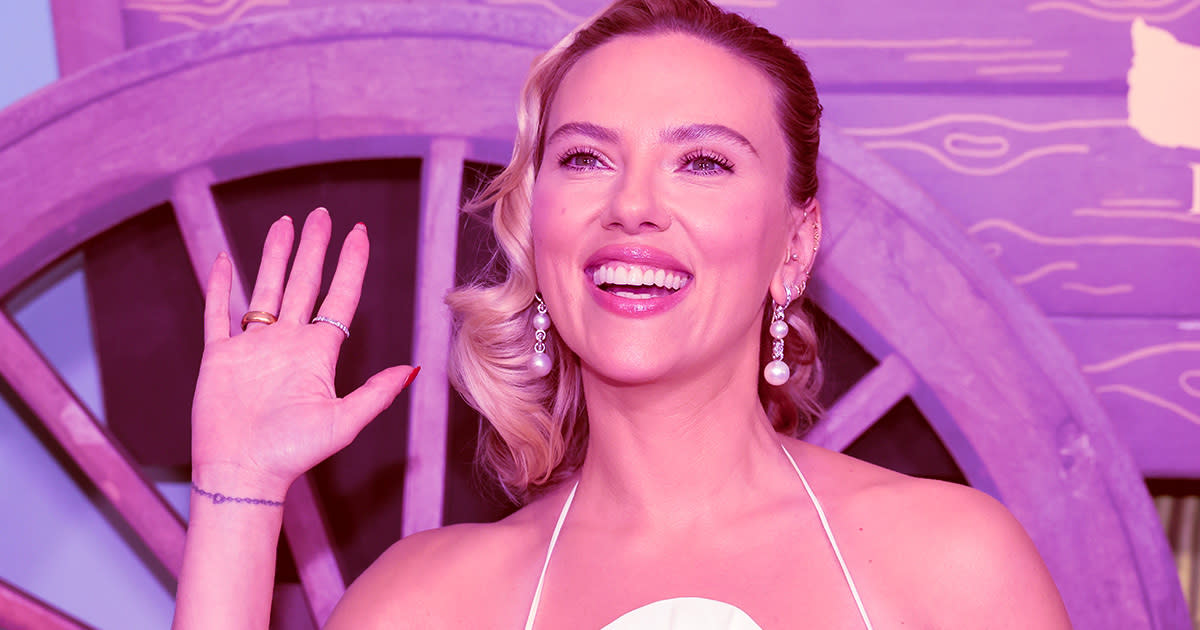Legal Experts Say OpenAI Is in Big Trouble If Scarlett Johansson Decides to Sue

Open Season
OpenAI has landed itself in hot water for pushing out an update to ChatGPT that features a virtual assistant with an uncanny vocal resemblance to Scarlett Johansson — and it could be staring down the barrel of a compelling lawsuit.
Almost instantly, comparisons to the movie "Her" abounded, in which the actress plays a chatbot named Samantha that falls in love with a lonely man. Had OpenAI just aped her role — and her voice? Officially, it said no. Then, Johansson dropped a bombshell: leadership at the AI startup had in fact asked permission to use her voice last year. She said no, and they did it anyway.
Recall that Johansson was determined enough to successfully sue Disney in the not-too-distant past. So just how good are her odds against OpenAI, the ChatGPT-creators that have stopped at nothing to vacuum up the internet and amalgamate the entire corpus of human creativity?
"This is a very strong case of appropriation of likeness," Ryan Calo, a law professor at the University of Washington, told The Information's The Briefing newsletter.
James Grimmelmann, a professor of digital and internet law at Cornell University, concurs.
"You can't imitate someone else's distinctive voice to sell stuff," he told Wired.
Voice Thieves
As The Information explains, there's ample precedent for celebrities suing for an appropriation of likeness that predates AI. One notable example is when singer Tom Waits successfully sued Doritos for using an impersonator in a radio ad that imitated his distinctive, deep and raspy voice.
And in a case that mirrors Johannson's, the singer and actress Bette Midler sued Ford for using one of her backup singers to imitate her in a commercial — after Midler had turned down the automaker's offer to star in the ad herself.
Of course, these don't always pan out. Lindsay Lohan infamously tried to sue Rockstar Games because she claimed a character in GTA 5 was her spitting image — and lost.
But Johannson's case would seem to have a lot more ammo. "What matters exclusively is: were they trying to make it sound like ScarJo?" Calo told The Information. "The evidence that they were is very strong."
OpenAI CEO Sam Altman, for example, is a veritable "Her" fanboy, calling it one of his favorite sci-fi movies. And on the day of the ChatGPT update, Altman tweeted the single word "her," which almost certainly is a tie to the movie. That may prove to be a legendary screw-up; Johannson, in her statement, said that it "insinuated that the similarity was intentional."
Biding Their Time
Johansson has not yet decided to file a lawsuit against OpenAI, but she has begun to arm herself with lawyers, including John Berlinski, who represented her in her battle against Disney.
They'll have to carefully weigh their options. The case could fall under the purview of "right of publicity," according to Brian L. Frye, a professor at the University of Kentucky's College of Law, but it's a quite "esoteric" area of law, he told Wired. A few experts think the case is "weak."
So the outcome is uncertain. But for most, OpenAI is definitely coming off as the bad guy.
"They intentionally invited the public to make the identification between Sky and Samantha. That's not a good look," Grimmelmann told Wired. "I wonder whether a lawyer reviewed Altman's 'her' tweet." If one hadn't already, they definitely are now.
More on OpenAI: The New ChatGPT Has a Huge Problem in Chinese

 Yahoo News
Yahoo News 
